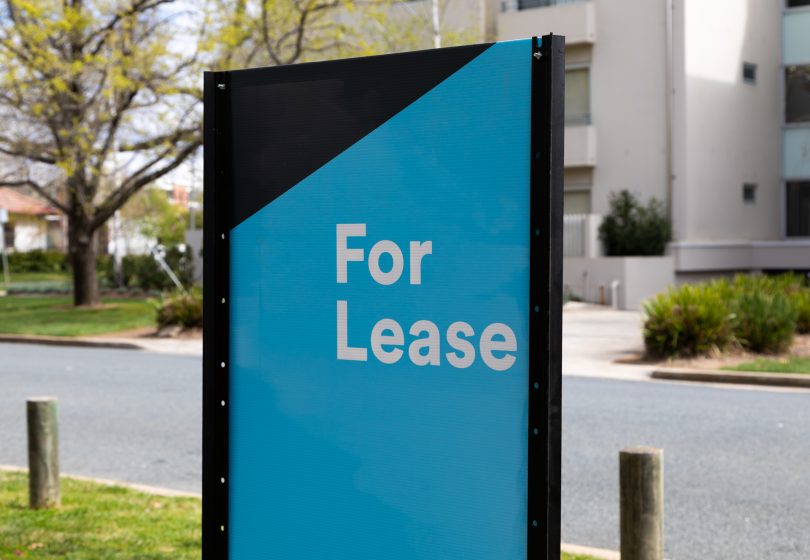
The rental reforms will give tenants more security, says Attorney‑General Shane Rattenbury. Photo: Michelle Kroll.
The ACT has become the first Australian jurisdiction to outlaw no-cause evictions as part of its long-flagged legislation to strengthen renters’ rights.
Welcoming the passage of rental reforms through the ACT Legislative Assembly on Tuesday (21 March), Attorney General Shane Rattenbury said the changes would give tenants greater security and remove the fear of being evicted without a clear reason stated in the legislation.
“It’s important that people who rent feel like their house is a home. Rental conditions in the ACT are already very challenging, with rising rents and limited supply,” Mr Rattenbury said.
Under the Residential Tenancies Legislation Amendment Bill, no-cause evictions will be removed from the Residential Tenancies Act 1997 from 1 April 2023.
“We have heard from the community that no-cause evictions have a profoundly negative impact on renters, either because of the eviction itself, or because it stops renters being able to raise other legitimate concerns out of fear of eviction,” Mr Rattenbury said.
The Bill also scraps ‘end of fixed term tenancy terminations’, where renters can be evicted without reason when their lease has expired.
Other changes will ban landlords and agents from asking for or encouraging rent bids, allowing tenants greater freedom to grow their own food and to compost, and creating a framework to support the future introduction of minimum housing standards for rental properties.
Landlords will now be required to notify prospective tenants about whether a property meets minimum standards.
If a property doesn’t meet a minimum housing standard, tenants will be allowed to seek a rent reduction, compensation or end the tenancy. The law will also give landlords a right to access the rental property if they need to upgrade it to meet a minimum standard.
Mr Rattenbury said the changes would balance the concerns of renters and landlords.
“These laws remain balanced by still recognising that landlords will at times need to end tenancies for genuine reasons, such as selling the property, or when a tenant breaches the agreement,” he said.
The laws will also extend to Housing ACT, which will now have more power to evict tenants who break the conditions of their lease. The government says this will allow public housing properties to be managed more efficiently.

Opposition Housing spokesperson Mark Parton: investors will flee the market. Photo: Ian Bushnell.
Opposition Housing spokesperson Mark Parton told the Assembly that the changes were meant to make life better for renters but would do the exact opposite by driving investors out of the market, worsening the ACT’s tight vacancy rates and rental affordability crisis.
He accused the government of demonising landlords.
“This city actually needs private individuals to take the risk, make the effort, buy a house and rent it out and what we’re seeing play out here in Canberra is a continual narrowing of the private rental market as the population grows,” he said.
Mr Parton said the changes would also result in the ACT Civil and Administrative Tribunal being flooded with cases.
But Mr Rattenbury said there was no evidence that investors would abandon the rental market, citing data from Victoria a year after the state introduced minimum standards and research from the Australian Housing and Urban Research Institute.
“In the ACT, rental yields and housing investment remains strong, which indicates these rental reforms won’t have a significant impact on the rental and housing market,” he told the Assembly.
Bernadette Barrett from Better Renting described the ban on no-cause evictions as a significant victory for renters and advocates in the region who have long been calling for these changes.
“Removing the ability of landlords to evict tenants without good reason will provide greater stability and security to renters in their homes,” Ms Barrett said.
“This change will also empower renters to better advocate for their rights without fear of retaliation, giving them more power to negotiate with landlords and push for necessary repairs or changes to their living arrangements and allowing them to create a better sense of home.”
Ms Barrett the introduction of further minimum housing standards for rental properties would provide renters with healthier and safer living conditions.
“The reforms are a welcome step towards ensuring all renters in the ACT have access to stable and healthy homes,” she said.





















